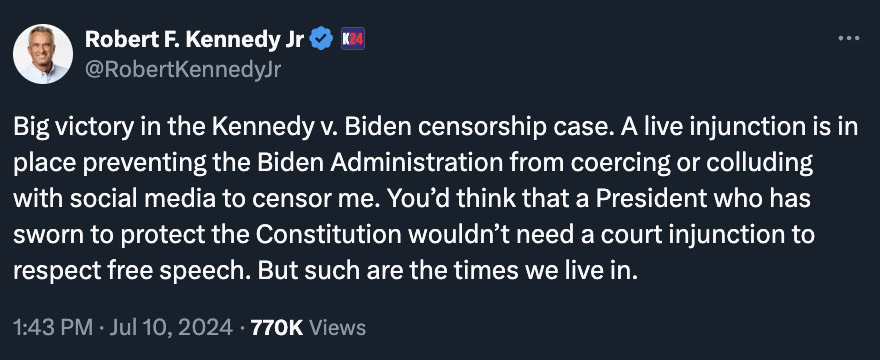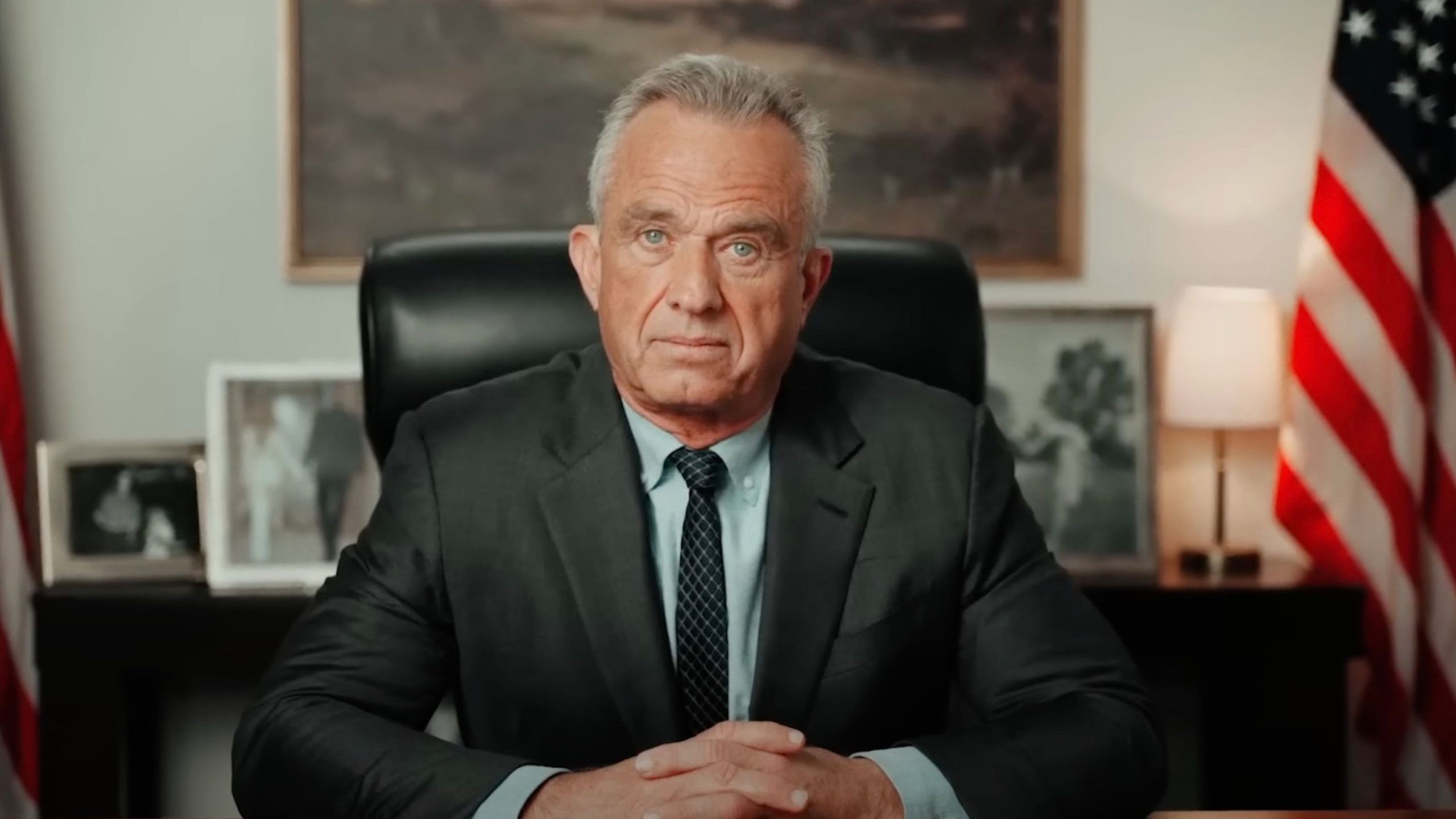Judging by several legal actions taken recently – and the speed at which it reacts (a looming election might have to do with that) – the Biden White House is very interested in making sure there are no hurdles to “communicating” with private social media companies.
The problem is that opponents see this as these companies being put under pressure to suppress or censor online content.
Some of those affected have challenged the practice in court – prompting the administration to counter this by seeking the dismissal of preliminary injunctions prohibiting collusive practices.
One such case is Kennedy v. Biden, a lawsuit alleging removal of content related to COVID topics brought by Robert F. Kennedy Jr. and health professional Connie Sampognaro, who said their right to free speech had been violated.
The filing was granted a preliminary injunction (to prevent the administration and its agencies from continued alleged involvement in censorship) by a US district court in Louisiana.
Not only that, but Judge Terry A. Doughty stated in his decision that the injunction was needed as Kennedy was “likely to succeed in the merits of his claims.”
The injunction refers to the defendants: the White House, the Centers for Disease Control and Prevention (CDC), and the FBI, and is there to stop them from attempting to remove content by undertaking any kind of action to this effect.

But earlier in the week the White House earlier went to the 5th Circuit US Court of Appeal filing an emergency motion only a day after the Louisiana court ruling. The goal was to dismiss the injunction. And the administration’s lawyers heavily refer to the Supreme Court ruling in Murthy v. Missouri.
After that decision, they said, Kennedy and others suing on similar grounds are “unlikely” to prevail in their legal battles anyway. Regarding the injunction, the government’s legal representatives called it “overbroad at a minimum” – and that’s – “in light of the Missouri case.”
In Murthy v. Missouri, the Supreme Court decided that those wishing to sue the Biden administration for collusion with social platforms had no standing to do so, with one of the justices, Amy Barrett, using a similar term – “overly broad assertion” – to describe the plaintiffs’ claims in that case.








